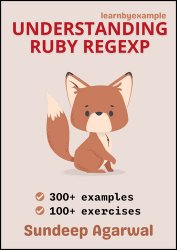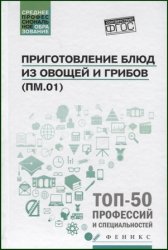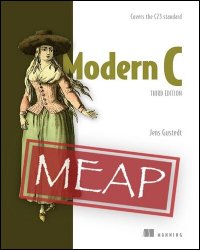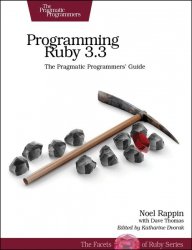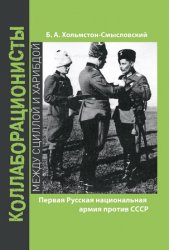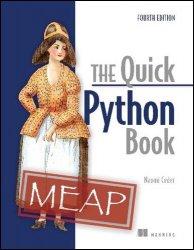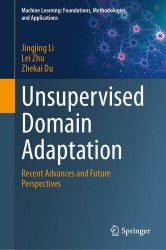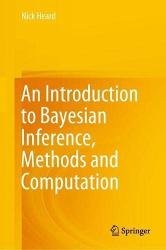 Название: An Introduction to Bayesian Inference, Methods and Computation
Название: An Introduction to Bayesian Inference, Methods and ComputationАвтор: Nick Heard
Издательство: Springer
Год: 2021
Страниц: 176
Язык: английский
Формат: pdf (true), epub
Размер: 35.7 MB
These lecture notes provide a rapid, accessible introduction to Bayesian statistical methods. The course covers the fundamental philosophy and principles of Bayesian inference, including the reasoning behind the prior/likelihood model construction synonymous with Bayesian methods, through to advanced topics such as nonparametrics, Gaussian processes and latent factor models. These advanced modelling techniques can easily be applied using computer code samples written in Python and Stan which are integrated into the main text. Importantly, the reader will learn methods for assessing model fit, and to choose between rival modelling approaches.
The aim of writing this text was to provide a fast, accessible introduction to Bayesian statistical inference. The content is directed at postgraduate students with a background in a numerate discipline, including some experience in basic probability theory and statistical estimation. The text accompanies a module of the same name, Bayesian Methods and Computation, which forms part of the online Master of Machine Learning and Data Science degree programme at Imperial College London.
Starting from an introduction to the fundamentals of subjective probability, the course quickly advances to modelling principles, computational approaches and then advanced modelling techniques. Whilst this rapid development necessitates a light treatment of some advanced theoretical concepts, the benefit is to fast track the reader to an exciting wealth of modelling possibilities whilst still providing a key grounding in the fundamental principles.
To make possible this rapid transition from basic principles to advanced modelling, the text makes extensive use of the probabilistic programming language Stan, which is the product of a worldwide initiative to make Bayesian inference on user-defined statistical models more accessible. Stan is written in C++, meaning it is computationally fast and can be run in parallel, but the interface is modular and simple. The future of applied Bayesian inference arguably relies on the broadening development of such software platforms.
The research-level complexity of performing Bayesian inference with the statistical models typically encountered in practical decision problems can provide a barrier to these methods being widely deployed. To alleviate this problem, a number of probabilistic programming languages have been developed specifically to automate Bayesian inference. This text will focus on the language Stan, due to its widespread adoption and the depth of tutorial resources available. Brief details will also be given for two alternative libraries, PyMC and Edward. All three can be accessed through the general-purpose, interpreted programming language Python. To illustrate the use of computer software packages in performing Bayesian inference, the following hypothetical statistical model will be used to provide a working example.
Скачать An Introduction to Bayesian Inference, Methods and Computation
[related-news] [/related-news]
Комментарии 0
Комментариев пока нет. Стань первым!


